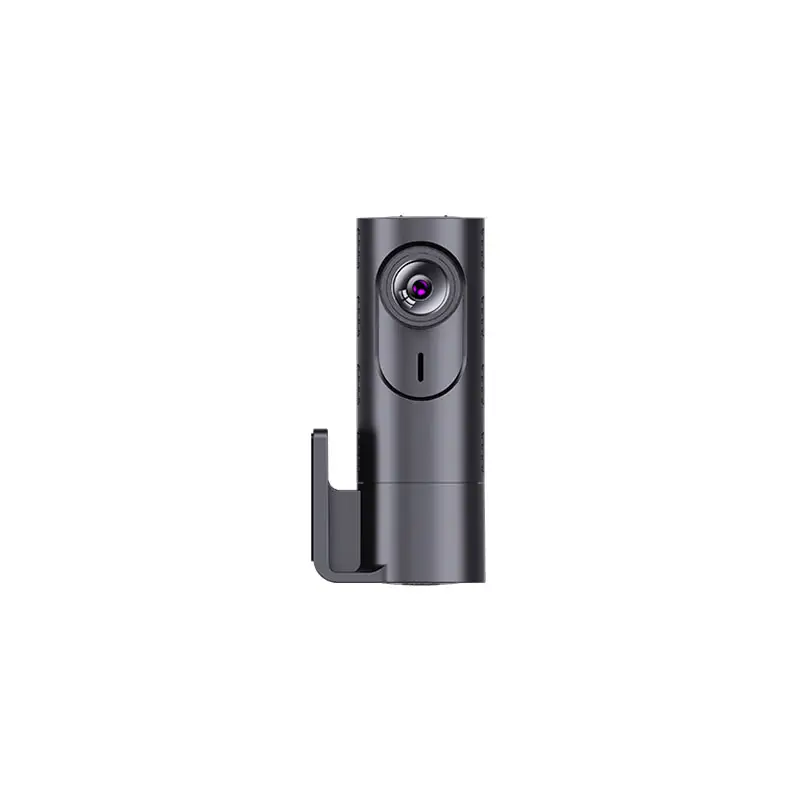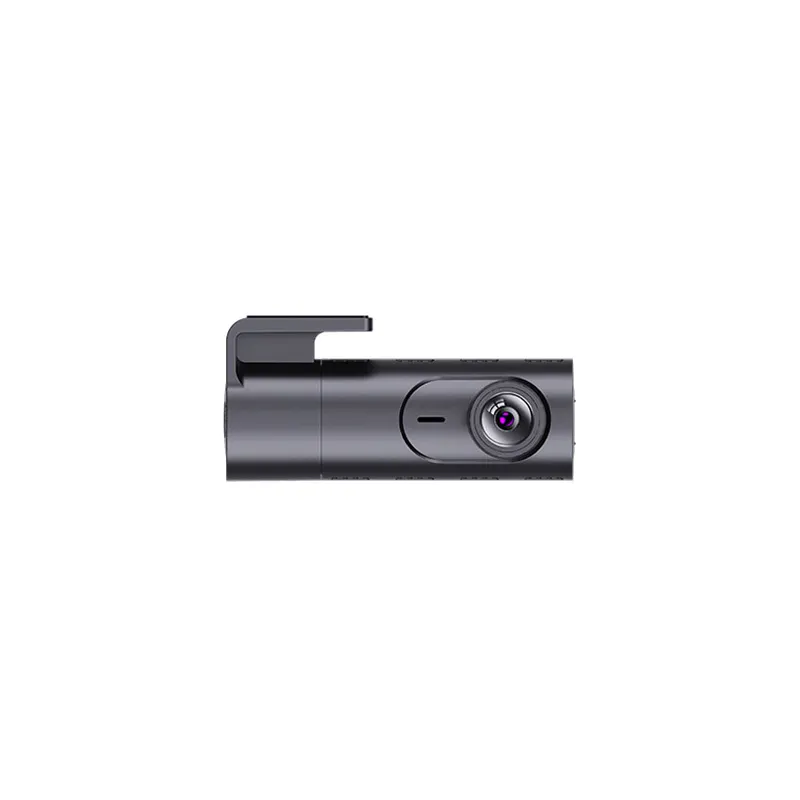Nutikam sõitmine algab seotud tehnoloogiaga
Tühikirjutajate tehnoloogia areng on muundanud juhtide lähenemist ohutusele, tõhususele ja reaalajas otsuste tegemisele teedel. Neist saavutustest eristuvad 4G LTE Tühikirjutajad kui võimas tööriist reaalajas juhtimisinfo kogumiseks. Need täiustatud kamerad pakuvad rohkem kui lihtsalt pilte – need võimaldavad seotust, automatiseerimist ja analüüte viisidel, millel traditsioonilised mudelid ei suuda. Juhtidele, ettevõtetele ja sõidukiparkide haldajatele on investeerimine 4G LTE tuledaamikad annab võimaluse käitumist proaktseis jälgida, ennetada insidente ja parandada teedel üldist jõudlust.
4G LTE Tühikirjutajate põhifunktsioonid
Reaalajas ühenduvus ja pilveteenustega integreerimine
Üheks peamiseks eeliseks on 4G LTE tuledaamikad on nende võime edastada andmeid reaalajas. Need seadmed kasutavad mobiilivõrke, et saata videomaterjal, hoiatused ja telemetria otse pilveteenusesse. See tagab selle, et kasutajad saaksid ligi pääseda oma kaamera toitele ja sõiduandmetele peaaegu kõikjaltpoolt. Põhimõttelised juhid saavad kasuks keskendatud armatuurlaudadest, samas kui igapäevased juhid hindavad rahulikku meelt, mis tuleneb nende sõiduki tegevusest kohe kättesaadavusest.
Täiendavad ohutusalertide ja teadete võimalused
Peale video salvestamise pakuvad 4G LTE salvestusseadmed funktsionaalsusi, nagu reaalajas hoiatused tugeva pidurdamise, ootmatu kiirenduse või põrgete jaoks. Neid teateid saab seadistada, et saata need mobiilirakendustesse või e-posti, võimaldades kiiret reageerimist erakorralistel juhtudel. Selle andmete kättesaadavus aitab juhtidel jääda vastutavaks ning võimaldab juhimeistritel tuvastada riskantse käitumise mustreid enne, kui need viivad õnnetusteni.
Reaalajas teave juhtidele ja transpordiettevõtetele
Käitumisandmete jälgimine
4G LTE-süsteemiga varustatud auto salvestusseadmed koguvad üksikasjalikke käitumisandmeid, sealhulgas kiirust, pidurdamise jõu, rajavahetusi ja tähelepanu hajutamise tuvastamist. Sellised teave on hädavajalik juhtimisharjade mõistmiseks ja parandamiseks sobivate piirkondade tuvastamiseks. Transpordiettevõtjad kasutavad neid andmeid tulemuslikumaks juhtide treeninguks, vastavuse parandamiseks ja ohutu sõiduauhindade andmiseks.
Marsruudioptimeerimine ja ajakasutuse juhtimine
GPS-i ja 4G LTE süsteemiga integreeritud auto salvestusseadmed võivad pakkuda reaalajas asukoha jälgimist ja marsruudilisi kohandusi. Kättetoimetamise ettevõtete või sõiduautode juhtidele tähendab see ootamise vähendamist, kättetoimetamise tsüklite lühendamist ja paremat ajakavale järgimist. Reaalajas liikluse olude jälgimine võib viia parema planeerimiseni ja kiirema teenusepakkumiseni.
Isiklike sõidukite omanikele tulenevad eelised
Turvalisus seismaole või kohalt lahkudes
Üks suurim probleem autode hoidjatele on see, mis juhtub, kui nad jätavad oma auto tähelepanuta. 4G LTE tuledaamikad pakuvad parkimise jälgimise funktsioone liikumisandurite ja eemalt otsese videoülekande abil. See võimaldab omanikel saada teatisi ja vaadata reaalajas salvestisi, kui nende parkitud auto lähedal toimub kahtlast tegevust.
Kindlustuspreemiad ja õiguskaitse
Õnnetuse korral võimaldab kvaliteetse video saadavus kiirendada ja täpsemaks teha nõudeid. Andmete reaalajas edastamine tagab, et need ei läheks kaduma ega muudetaks. Mõned kindlustusfirma pakuvad isegi sooduspakke klientidele, kes kasutavad 4G LTE tuledaamikaid, kuna need vähendavad pettusi ja selgitavad vastutust.
Äri- ja ärilised rakendused
Transpordivahendite haldamine ja logistika
Ettevõtted, millel on kätted, teenindusautod või transpordivõrgustikud, võtavad kiiresti kasutusele 4G LTE tõlktahvelkamerad, et parandada tõhusust ja ohutust. Need süsteemid võimaldavad juhtidel jälgida sõidukeid, jälgida juhi tööd ja reageerida kohe hädaolukordadesse. Reaalajas videote ülekandmine toetab kiiret otsuste tegemist ja parandab kliendiel rahulolu parema tarne nähtsuse kaudu.
Kohustuste järgimine ja aruandluse automatiseerimine
Reguleerivate nõuete järgimine võib olla keeruline ja aeganõudev. 4G LTE tõlktahvelkamerad lihtsustavad seda, genereerides automaatseid aruandeid sõiduaegadest, valitud marsruutidest ja ohutusreeglite rikkumistest. Need funktsioonid on eriti kasulikud ettevõtetele, kes peavad säilitama üksikasjalikke logisid auditi või kindlustusdokumentatsiooni jaoks.

Integreerimine teiste nutikate tehnoloogiatega
IoT-ga ühilduvus ja telematikasüsteemid
Paljud tänapäevased 4G LTE kiiruse salvestusseadmed on ühilduvad IoT platvormide ja telematika tarkvaraga. See võimaldab sügavamat integreerimist sensoritega, mootori diagnostikaga ja reaalajas analüütika tööriistadega. Kasutajad saavad jälgida kütuseefektiivsust, tuvastada hooldusvajadusi ja hinnata sõiduki jõudluspärandit visuaalsest salvestusest tulenevalt.
AI-põhine sündmuste tuvastamine
Tehisintellekt on muutumas standardiks uusimatel 4G LTE kiiruse salvestusseadmetel. Need süsteemid suudavad analüüsida salvestust reaalajas, tuvastades sündmusi, nagu unisus, liiga lühike sõiduvahemik või mobiiltelefoni kasutamine. Kombinates AI-d 4G LTE-ga, saavad kasutajad nutikamaid teateid, mis aitavad ennetada ohte enne nende eskaleerumist tõsiste juhtumiteks.
Seadistamine, kasutatavus ja kuluefektiivsus
Lihtne paigaldamine ja seadistamine
4G LTE tuledaamkamerate paigaldamine on tavaliselt lihtne. Enamikku mudeleid saab lihtsalt ühendada ja need on varustatud mobiilirakendustega seadistamiseks. Kasutajad saavad hõlpsasti kohandada seadeid, seadistada pilvepärimist ja aktiveerida teateid keerulise tehnilise teadmise nappusel. Mõned süsteemid pakuvad isegi hääljuhtimist või kaugtuge.
Kuluefektiivne pikaajaline väärtus
Kuigi 4G LTE tuledaamkamerad võivad alguses maksma rohkem kui tavamudelid, pakuvad nad olulist pikaajalist väärtust. Vähendatud õnnetusohutus, kindlustussoodustused, parem sõiduomadused ja väiksem sõiduki seismisaeg kõik aitavad kaasa investeeringutasuvusele. Nii üksikisikutele kui ettevõtetele on need seega pikaajaliseks kasutamiseks mõistlik valik.
Tulevikku suunatud 4G LTE tuledaamkamerad
Uuendatavus ja laiendatavus
Kuna ühendatud sõiduautode tehnoloogia areneb, on oluline, et seade suudaks kasvada Teie vajadustega kaasa. 4G LTE kiirtagasilülitid toetavad sageli tarkvarauuendusi, uute rakenduste integreerimist ja moodulilisi lisasideseid. See tulevikku kindlustab investeeringu ja tagab ühilduvuse uue autovaldkonna suundumustega.
Autonoomse ja abistatud sõidu toetamine
Kuna üha rohkem sõidukeid on varustatud ADAS- (Advanced Driver-Assistance Systems) süsteemidega, ootatakse, et 4G LTE kiirtagasilülitid mängiksid toetavat rolli. Nende võime koguda, töötleda ja edastada andmeid reaalajas aitab parandada autonoomse sõidu algoritme, muutes need nutika sõidu ökosüsteemi oluliseks elemendiks.
KKK
Mis eristab 4G LTE kiirtagasilülitit Wi-Fi kiirtagasilülititest?
4G LTE kiirtagasilülitid kasutavad andmete edastamiseks mobiilivõrke, mis võimaldab reaalajas juurdepääsu salvestustele ja hoiatustele ilma kohaliku Wi-Fi ühenduse nõudmiseta. See teeb neist ideaalseks lahenduseks kaugseiresse ja katkematult jälgimiseks.
Kas ma saan 4G LTE kiirtagasilüliti salvestustele juurde pääseda, kui ma reisin?
Jah, enamik 4G LTE tuledaamkameraid pakuvad mobiilirakenduste või pilvplatvormide kaudu kaugligipääset. Sa võid vaadata otseseid videoid, üle vaadata salvestusi ja saada teatisi, kus iganes sa oled.
Kas 4G LTE tuledaamkameeride paigaldamine on keeruline?
Enamikku mudeleid on disainitud kasutajasõbraliku paigalduse jaoks. Need kohandatakse tavaliselt kinnituskomplektide, toitekaablite ja samm-sammuliste rakendusjuhistega, et kiiresti alustada.
Kas 4G LTE tuledaamkameeridel on tellimine vajalik?
Paljudel 4G LTE tuledaamkameeridel on vajalik andmekava, et kasutada oma võrgufunktsioone. Need kavad erinevad sõltuvalt teenusepakkujast ning võivad olla saadaval kuu- või aastatel.
Sisukord
- Nutikam sõitmine algab seotud tehnoloogiaga
- 4G LTE Tühikirjutajate põhifunktsioonid
- Reaalajas teave juhtidele ja transpordiettevõtetele
- Isiklike sõidukite omanikele tulenevad eelised
- Äri- ja ärilised rakendused
- Integreerimine teiste nutikate tehnoloogiatega
- Seadistamine, kasutatavus ja kuluefektiivsus
- Tulevikku suunatud 4G LTE tuledaamkamerad
- KKK



